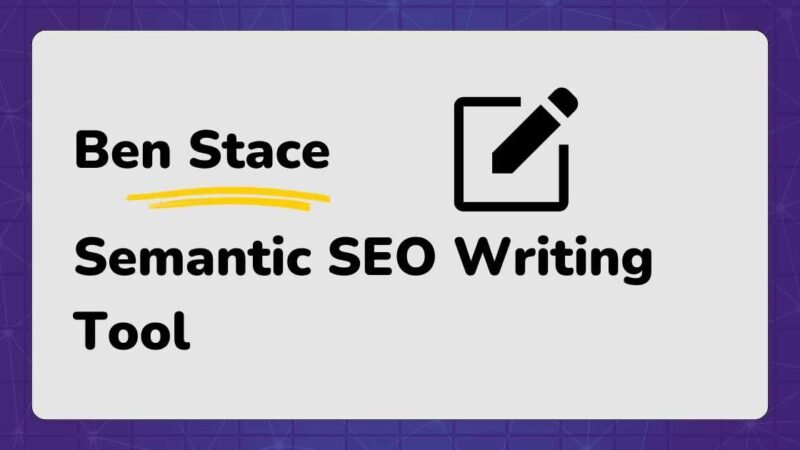What is Search Engine Optimization(SEO) – Digital Marketing:

SEO stands for Search Engine Optimization. It is basically the process of optimizing a website or online content to improve its visibility in search engine results pages (SERPs) like Google, yahoo, bing, etc.
The main focus of SEO is to increase organic (non-paid) traffic to a website by ranking higher on search engine result pages (SERPs) for specific keywords or phrases that users search for.
In today’s digital era, where billions of searches occur daily on different search engine platforms like Google, Bing, and Yahoo, SEO plays a critical role in controlling a business’s online success. It ensures that your website is not just visible(indexed) by search engines but also ranks high enough to capture the attention of possible visitors.
Till now, in this article, we have understood what Search Engine Optimization is. Now, we will understand the types of SEO and why it is essential.
3 Main Types of Search Engine Optimization(SEO)
Knowing the different types of Search Engine Optimization(SEO) is essential when you are creating your seo campaign. When you dive into seo, you will come across several kinds of SEO claiming to be different types of SEO, but not all of them are important. In this article we will discuss only important types of seo. Here is the 3 main types of SEO:
On-Page SEO
Off-Page SEO
Technical SEO
To make your website visible on the search engine results page of any platform, you need to focus on three types of SEO (on page, off page and technical seo). By understanding and optimizing these seo types, businesses can ensure their content appears in response to relevant queries.
Lets discuss these types in detail.
1. On-Page SEO
On-Page SEO, as the name recommend, refers to SEO that is applied directly on the webpage, which you can control and optimize to improve rankings. This includes content quality, keyword usage, meta tags, and internal linking. Here are the key aspects of On-Page SEO.
Key Elements of On-Page SEO
Effective on-page SEO involves a variety of elements. Let’s dive into each one and understand how they contribute to improving search engine rankings.
URL Structure
A clean and well-structured URL is not only user-friendly but also important for SEO. Search engines use URLs to understand the content of a page, and users often prefer URLs that are simple and descriptive.
Try to keep URLs short and relevant to the content and avoid using unnecessary symbols, numbers, or long words in URLs and Also, use hyphens (-) to separate works in URLs.(e.g: “how-to-improve-seo”)
Keyword Research
A keyword is a specific word or phrase that people enter into search engines. Keyword helps businesses optimize their content to match these queries, driving more relevant traffic to their websites. By targeting the right keywords, companies can improve their search engine rankings, attract potential customers, and enhance conversions. Tools like Google Keyword Planner and SEMrush are commonly used to find high-traffic keywords and gain insights into user intent.
Content Optimization
Content is the base of on-page SEO. Quality SEO content means creating content that is both user-friendly and search engine-friendly by focusing on the needs and interests of the target audience, using relevant keywords, and attracting links and shares to improve search engine rankings.
Header Tags (H1, H2, H3)
Header tags help organize your content into sections, making it easier for both users and search engines to understand. The H1 tag is typically used for the page’s main title, while H2 and H3 tags are used for subheadings and subsections.
Title Tag Optimization
The title tag is one of the most important on-page SEO factors. It appears in search engine results as the clickable headline and also in the browser tab. A well-crafted title tag can attract more people or client and help improve click-through rates (CTR) and overall rankings.
Meta Description
The meta description is a brief summary of the webpage’s content, appearing under the title in search results. Although it doesn’t directly affect rankings but it plays an important role in attracting clicks. Including the target keyword make it more effective.
Internal Linking For SEO
Internal Linking For SEO involves placing links within a website to connect relevant pages together in order to improve user experience and It also helps search engines to understand the structure of your content.
Image Optimization
Images enhance user experience but also need to be optimized for search engines. Proper image optimization can help improve page load speed and ranking in Google Image Search. Add alt text for every image and using relevant keywords help describing what the image depicts.
2. Off-Page SEO
Off-Page SEO refers to actions taken outside your website to improve its authority and reputation. It focuses on building trust signals that search engines recognize as indicators of a credible and valuable site.
Key Elements of Off-Page SEO
Off-Page SEO can be done by building high-quality backlinks, promoting the website on social media, and other forms of online marketing. Key Off-Page SEO strategies include:
Backlink Building
Backlinks are links from other websites to yours. High-quality backlinks from authoritative sites act as endorsements, signaling to search engines that your content is trustworthy. Building backlinks or guest blogging is when you write an article for another website and include a backlink to your own site in exchange. This can improve your website’s visibility and authority, and attract more traffic to your site.
Press Distribution
Sharing press releases with relevant media outlets to secure backlinks, attract potential customers, and increase brand recognition.
Social Media Marketing
Although social media signals (likes, shares, etc.) don’t directly impact SEO rankings but they amplify content visibility. When your content is widely shared on platforms like Facebook, Twitter, and LinkedIn, it increases the likelihood of earning backlinks and driving organic traffic.
Brand Mentions
Even unlinked mentions of your brand across the web can boost your online authority. Encouraging reviews and being featured in news articles or industry blogs are effective ways to build brand visibility.
Internet Ads
Internet ads play a crucial role in boosting Search Engine Optimization(SEO) efforts. Paid advertisements like Google Ads drive traffic to websites, enhancing their visibility on search engines. These ads complement organic SEO by targeting specific keywords and audiences. Proper integration of internet ads with SEO strategies ensures better rankings and higher conversions.
3. Technical SEO
Technical Search Engine Optimization(SEO) involves optimizing the infrastructure of your website to ensure it is accessible and user-friendly. This includes:
Key Elements of Technical SEO
The key element of technical SEO are:
Website Speed
Website speed refers to how quickly a webpage loads and responds to user interactions. Slow-loading websites frustrate users and are penalized by search engines. Fast websites are also favored by search engines, which can improve rankings. Factors that affect website speed include image sizes, server performance, and the use of efficient coding.
Mobile-Friendliness
Mobile-friendliness refers to how well a website functions on mobile devices, ensuring it is easy to navigate, load, and interact with on smaller screens. With increasing mobile internet usage, websites must be responsive, adapting to various screen sizes without losing functionality. A mobile-friendly site improves user experience, reduces bounce rates, and positively impacts search engine rankings. Ensuring mobile compatibility is crucial for reaching a broader audience and enhancing overall site performance.
Site Structure
Site structure refers to the organization of a website’s pages and content and ensuring easy navigation for both users and search engines. A clear, logical structure helps visitors find information quickly and improves overall user experience. It also aids search engines in crawling and indexing the site, which can enhance Search Engine Optimization. Proper site structure is essential for better usability and higher search rankings.
Security:
Security is a vital aspect of technical SEO, ensuring your website is safe for users and search engines. Implementing HTTPS with an SSL certificate protects data and builds trust with visitors. Search engines prioritize secure websites, which can improve rankings. Regularly updating software, plugins, and monitoring for vulnerabilities is essential. A secure website not only enhances SEO but also safeguards user information and your online reputation.
Crawl Error Identification
Crawl error identification is the process of finding and resolving errors that prevent search engines from accessing website content. These errors can include broken links, missing pages, and other issues that can negatively impact search engine visibility. By fixing crawl errors, website owners can improve their website’s search engine rankings and overall visibility.
The Importance of SEO
SEO is essential Because it can increase your organic visibility with best authority in search engine results pages, which may result in increased website traffic and brand image. which finally results in an increase sales.
1. Increases Organic Traffic
Unlike paid ads, SEO focuses on increasing free and organic (real) traffic to your website. By optimizing your site for relevant keywords, search engines rank your content higher, making it more accessible to users. Higher visibility in search results ensures more clicks and engagement from your target audience. Organic traffic builds trust and credibility. Consistent SEO efforts lead to long-term growth in website traffic and overall success.
2. Enhance presence and upgrade ranking.
SEO plays a crucial role in enhancing your online presence and improving your website’s ranking on search engines. By optimizing your content, keywords, and technical aspects, your site becomes more accessible to users and search engines alike. Higher rankings increase visibility, helping your brand reach a broader and vast audience. This improved presence establishes credibility and trust with potential customers. Ultimately, SEO ensures your website stands out in a competitive digital world.
4. SEO shows authority
SEO helps establish your website as an authority in your industry by optimizing high-quality, informative, and relevant content. When your site ranks higher in search results, it signals to users and search engines that your brand is trustworthy and credible. Backlinks from reputable sources further strengthen this perception of authority. Consistent SEO practices build a strong digital reputation over time. Showing authority through SEO attracts more visitors and boosts customer confidence in your brand.
3. Enhances User Experience
SEO is not just about rankings; it also focuses on improving the user experience. By optimizing site speed, mobile responsiveness, and navigation, users can easily find what they need. High-quality content and user-friendly design keep users interested and reducing bounce rates. Search engines reward user-friendly websites with higher rankings. Ultimately, enhancing user experience through SEO leads to satisfied visitors and long-term success
The Competitive Advantage of Investing in SEO”
Businesses that invest in SEO gain a larger share of the market over competitors by increasing visibility and credibility online. Ranking higher in search results ensures that your brand reaches a larger audience, driving organic traffic and engagement. SEO helps establish trust with users, making your business a go-to choice in the market. Competitors who neglect SEO risk falling behind as search engines favor optimized websites. Ultimately, SEO sets your business apart and creates long-term growth opportunities.
Conclusion
Search Engine Optimization is one essential component of digital marketing, which help businesses to connect with their target audience and grow their online presence. By focusing on On-Page SEO, Off-Page SEO, and Technical SEO, you can build a comprehensive strategy that drives traffic, improves rankings, and enhances user experience.
While SEO requires time and effort, the long-term benefits are undeniable. In a competitive online world, investing in SEO is not just an option—it’s a necessity for businesses looking to succeed in this digital age. Companies that neglect using SEO always fall behind compared to those that use it.
“SEO is considered the soul of online business visibility”


